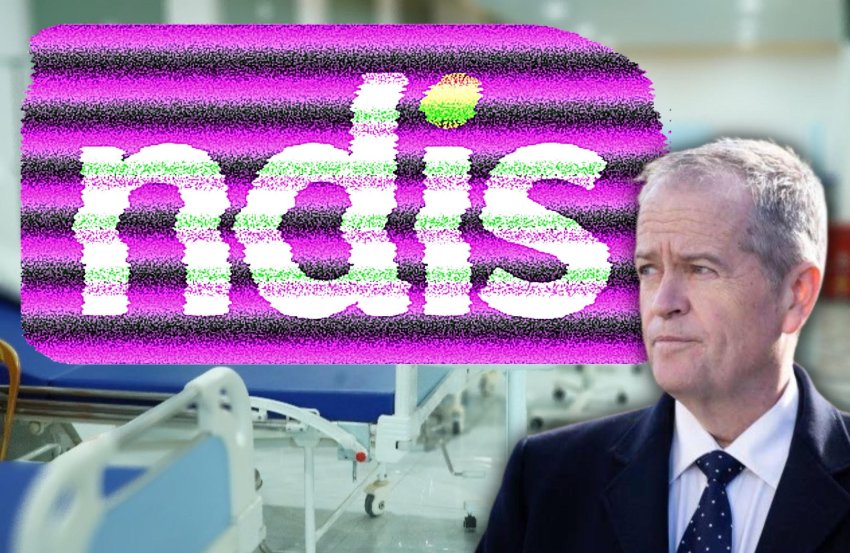
The final report of the National Disability Insurance Scheme (NDIS) Review, published on December 7, is difficult reading for many people with disability.
The review begun in October last year “to put people with disability back in the centre of NDIS”. However, Labor announced in April it would reduce annual spending growth for NDIS from 13.8% to no more than 8% a year by July 2026.
“We know that the trajectory of NDIS expenditure is just not sustainable into the future,” Prime Minister Anthony Albanese said on April 26. The central aim of the NDIS Review was redirected to find ways to reduce cost, to improve its “sustainability”.
“Australia is never going back to the bad old days,” intoned Bill Shorten, Minister for the NDIS and Government Services, in his speech to the National Press Club on December 7.
He said the NDIS Review “recommends actions needed to be taken over the next few years to help get the NDIS back on track and deliver better outcomes — not just for Australians with disability but all Australians”. In other words, he was motivating cuts to NDIS funding, which will make it harder to access and easier for participants to be removed.
Children with autism
More than 150,000 of the 610,000 NDIS participants are children under 9 year's old: 65% of participants aged 7–14 have been diagnosed with autism, according to a 2021 paper submitted to the National Disability Insurance Agency.
The NDIS Review has decided that a diagnosis (of autism or any other) will no longer guarantee access to the NDIS — a thinly veiled attempt to significantly cut costs.
“We must return to the principle that NDIS eligibility is based first and foremost on functional impairment rather than medical diagnosis,” the NDIS Review said.
“Access to the NDIS should be based first and foremost on significant functional impairment and need — and only secondly on medical diagnosis.”
Access lists that define which diagnoses would guarantee automatic access to NDIS will be scrapped. Rather, new applicants for NDIS will need to be assessed on their “functional capacity” by a “Needs Assessor”.
Detail is sketchy, but it appears that such assessors will be a “trained allied health practitioner or social worker or similar, with disability expertise”.
Ultimately, it is also envisaged that existing participants will also need to be assessed for their functional capacity by a Needs Assessor, to be able to remain participants.
‘Foundational supports’
For those who miss out on being accepted as an NDIS participant, or are excluded at a later point, the NDIS Review envisages “foundational supports”.
What will be included in these is unclear.
“A broader ecosystem of support would mean that if someone did not meet NDIS criteria, they’d still be able to access some services, instead of missing out altogether,” the ABC said on December 7.
“Examples of foundational supports could include help cleaning and cooking, personal assistance, early supports for children, and teenagers and peer support.”
There is no suggestion however, that “foundational supports” would be delivered free to persons with disability, without reference to income or other means testing, as NDIS supports are.
The My Aged Care program, for instance, which provides limited funding to provide assistance to persons over 65 is means tested, based on income and assets. NDIS supports, by contrast, are currently provided free to all who meet accessibility requirements.
Ongoing needs assessment
Once a participant has been accepted into the Scheme, they will need to go through further assessment conducted by a new Needs Assessor to determine a “reasonable and necessary” budget for the participant.
“The needs assessment may take many hours, perhaps over several days. The needs Assessor would really get to know you and your needs” according to FAQs provided with the NDIS Review.
Labor will amend the National Disability Insurance Scheme Act 2013 so that the concept of “reasonable and necessary” is applied to a participant’s overall budget, rather than each specific support. This step “would allow rationing of support without an avenue for legal challenge”, according to The Saturday Paper in 2021. The Scott Morrison Coalition government foreshadowed this same change then.
The new requirement for functional assessments of applicants and participants by “Needs Assessors” appears to closely track the “independent assessments” proposed by the Coalition, dismissed at the time by NDIS Review co-chairperson, Bruce Bonyhady as “robo-planning”.
Although the Coalition’s “independent assessments” in 2021 were defeated by a campaign by the disability community and were opposed by Labor in opposition, it appears to have dropped its objections in government.
These changes are likely to succeed, with Coalition support.
Excluding older people
The NDIS Review continues to recommend people aged 65 and over be excluded from the scheme.
“The NDIS was not designed to replace the aged care system. The two systems were meant to work together so that people with disability could receive appropriate support as they age,” according to the NDIS Review.
It does recommend, however, that the federal government amend legislation to allow NDIS participants to access supports in both NDIS and the aged care system concurrently, where that is considered “reasonable and necessary”.
NDIS is a frustrating and bureaucratic system, which forces people with disability to continually fight for the right to live their lives as they would like.
It is inadequate, indifferent and unsympathetic.
Nevertheless, it does guarantee support, free of charge, for needs that have been assessed as being “reasonable and necessary”.
The NDIS Review upends this guarantee, replacing it with a vague idea of “foundational supports”, which has yet to be properly defined, except that it will be much less than the support offered by NDIS.
Yet again, the right of people living with disability to live their lives independently is being compromised in the name of financial sustainability, cost-cutting and budget constraints.
[Graham Matthews is a disability advocate and a member of the Socialist Alliance.]